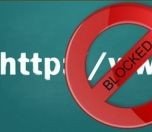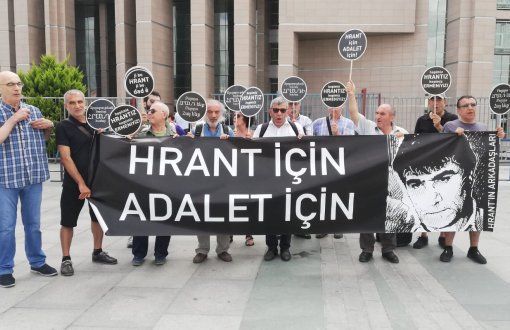Click here to read the article in Turkish / Haberin Türkçesini okumak için buraya tıklayın.
PEN International and PEN Norway have prepared a report on the government pressure on digital freedom.
The research for the 76-page report has been conducted by Alev Yaman and the editors are Sarah Clarke, Marian Botsford Fraser and Ann Harrison.
Can Dündar was supposed to write the introduction part
Can Dündar, Chief Editor of Cumhuriyet daily was going to write the introduction of the report yet this could not be actualized due to his arrest on account of his report on the trucks of National Intelligence Organization (MİT). Instead of the introduction supposed to be written by Dündar, the following statement has been addressed on the preface of the report:
CLICK - JOURNALISTS CAN DÜNDAR, ERDEM GÜL ARRESTED
“The silenced voice of journalist Can Dündar is the preface of this report.
“On the morning of 24 November 2015, Can Dündar, who had been working on this document, told us he had almost finished his final draft and would send it to us before the end of the weekend. That day he attended a court hearing about his case in Istanbul, where he was accused of ‘divulging state secrets’ and detained solely for carrying out his responsibilities as a professional journalist. Such charges could see him face life imprisonment. As I write this, he is awaiting trial in Silivri prison in Istanbul.
“The person chosen to present this report - Surveillance, Secrecy and Self-censorship: New Digital Freedom Challenges in Turkey – lost his freedom. A voice has been muted; a critical mind put behind bars; a committed journalist prevented from practising his profession. What clearer symbol could there be of the present situation of freedom of expression in Turkey?”
The report dwells on the new digital challenges in Turkey under following chapters:
*Restrictions on Individuals’ Right to Freedom of Expression Online in Turkey
*Online Censorship in Action
*Surveillance and the Use of Digital Evidence - The Erosion of Privacy in the Online Sphere
*Private Sector and Politics - Online Service Providers and Freedom of Expression in Turkey
*Conclusions and Recommendations - Recommendations to the Government of Turkey, other states, to the Council of the European Union and to Internet and social media companies
Criminal defamation charges threaten freedom of expression
Some of the findings of the report are as follows:
MİT’s wide-ranging powers to collect personal information not under judicial control
* The Law amending the Law on State Intelligence Services and the National Intelligence Agency (MİT) (NO 6532) entered into force with presidential endorsement on 26 April 2014 gives MİT wide-ranging powers to conduct surveillance and collect information.
*MiT’s requests are not subject to judicial scrutiny and cannot be contested, individuals and organisations whose data is sought have no means of ensuring that the requests are proportionate and necessary.
* Law No. 6638 on Amending the Law on the Powers and Duties of the Police, the Law on the Gendarmerie Organisation, Duties and Authorities, and Some Other Laws, introduced by parliament in November 2014 contains very worrying provisions that empower the police to conduct searches without prior authorisation, detain suspects for up to 48 hours without the authorisation of a prosecutor,expands their authorizations to use firearms in a public place, and increases the penalty under anti-terror legislation for people participating in violent or “propaganda” demonstrations, in a way likely to lead to increased use of mandatory pre-trial detention for protesters. It also gives governors the power to order police to pursue particular crimes and suspects.
* Criminal defamation has increasingly been used by high-ranking politicians in Turkey to penalise critical dissenting views
* Charges of defamation of religion and domestic security applications limit legitimate discussion on sensible issues by prosecuting individuals and creating a climate of fear
Recommendations
Following recommendations have been made to the government of Turkey, to other states which have relationships to Turkey, to the Council of the European Union and to Internet and social media companies operating in Turkey:
To the Government of Turkey:
*It should be ensured that Turkish law respects international human rights principles and reflects European Court of Human Rights (ECtHR) case law.
Narrow definitions of terrorism and
* The definitions of ‘“terrorism”, “organized crime” and “propaganda” should be narrowed.
* Law No. 5651 should be amended to ensure that freedom of expression is protected online, and that any blocking of websites, IP addresses, ports, network protocols or types of use (e.g. social networking) is justified in accordance with international standards and is subject to judicial approval before implementation.
*It should be ensured that legal safeguards governing surveillance are in line with the 13 principles on the application of human rights protections to communications surveillance and meet the three-part test of legality, necessity and proportionality.
*Access should be provided to remedy and reparation for individuals who have suffered unjustified intrusions into their privacy.
The presidency of Telecommunication (TİB) should be transparent
* Law No. 6532 (on Services and National Intelligence Agency) and Law No. 2559 (on the Powers and Duties of the Police) should be amended so that surveillance of communications is permissible only occurs under the most exceptional circumstances and exclusively under the supervision of an independent judicial authority.
* TİB should make blocking statistics publicly available on a regular basis as the administrative body did between May 2008 and May 2009.
Personal data should be protected by law
* Data protection legislation should be enacted that complies with international standards on the right to privacy and establishes an independent data protection authority.
Abuse of anti-terror legislation should be ceased
* Abuse of anti-terror legislation and the penal code to prosecute journalists, bloggers, activists and other civil society actors should be ceased.
*All individuals who are held for the peaceful exercise of their right to freedom of expression should be released and pending charges brought against others for similar reasons should be dropped.
Judicial control over state security services
* All legislation should be amended to ensure that there is judicial control over the actions of state security services, particularly the intelligence service and the police.
Firm date for chapter 23 of the EU Acquis
*The Council of the European Union should set a firm date to discuss chapter 23 of the EU Acquis concerning Justice and Fundamental Rights.
*Other states should emphasise in their relations with Turkey the importance of respect for human rights and the rule of law.
Internet and social media companies should resist against blockings
*Internet and social media companies operating in Turkey should challenge any content blocking orders which restrict the right to legitimate freedom of expression.
Click here to read the original report. (EA/DG)





.jpg)

kkk.jpg)

kkk.jpg)
kkk.jpg)


kkk.jpg)
kkk.jpg)
klkk.jpg)



.jpg)
.jpg)